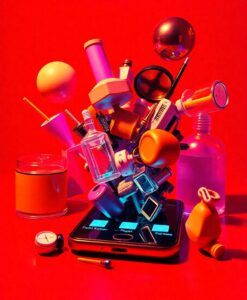Modern smartphones already carry sophisticated sensors that track our movements, interactions, and daily rhythms. What researchers are discovering now is how these minute technological breadcrumbs can reveal subtle shifts in mental health before traditional diagnostic methods might catch them. By analyzing patterns of communication, movement, sleep, and social engagement, these digital tools could provide early warning signals for conditions ranging from depression to anxiety.

The implications stretch far beyond clinical diagnostics. Imagine a world where technology becomes a compassionate early warning system, offering support precisely when someone might need it most. This isn’t about replacing human connection, but enhancing our ability to understand and care for each other through intelligent, empathetic technological interfaces. As we continue pushing the boundaries of how technology can support human potential, studies like these remind us that innovation is ultimately about creating more nuanced pathways to understanding our complex inner worlds.
Researchers are showing how phone sensors can track patterns tied to a wide range of mental health symptoms. Instead of relying only on self-reports, clinicians may soon be able to gather continuous, real-world data about patients. The study also found correlations with the broad “p-factor,” a shared dimension across mental health issues.

